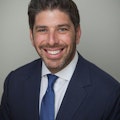The right mentor: Finding the right associate position and transitioning into ownership
Key Takeaways:
-
Mentorship drives long-term career success in dentistry
-
The right associate role prioritizes mentorship culture
-
Mentorship bridges the gap to ownership
-
Practice owners must treat mentorship as a strategic investment
-
Mentorship builds legacy and reputational equity
In oral and maxillofacial surgery-and dentistry as a whole-the path to professional fulfillment is often shaped by the relationships we build. At the core of this journey is the mentor/mentee dynamic, which influences everything from clinical growth to business acumen and long-term career trajectory. For associates seeking the right position, and those with aspirations of transitioning into ownership, aligning with the right mentor is not just beneficial-it's essential.
The role of mentorship in career development
Mentorship is more than just instruction-it's about imparting wisdom that can't be found in textbooks or CE courses. It's about helping mentees avoid common pitfalls, navigate complex practice dynamics, and develop the leadership skills necessary for ownership. For an associate, having the right mentor can mean the difference between feeling stuck in a job and building a career with upward mobility.
Early in my career, I had the privilege of learning from mentors who had already walked the path I was beginning. They provided me with invaluable insights on surgical techniques, patient management, and most importantly, the nuances of running a practice. Now, as a mentor myself, I see firsthand how critical guidance can be in shaping the future of an associate.
Choosing the right associate position
For associates entering the professional workforce, deciding where to practice can be one of the most important decisions they will make. Compensation, location, and case volume matter, but perhaps the most critical factor is the culture of mentorship within the practice. A strong mentor can accelerate an associate's growth in ways the promise of financial compensation alone never will.
When evaluating a potential position, associates should ask:
-
Will I have direct mentorship from experienced surgeons?
-
Does the practice leadership invest in professional development?
-
Will I be exposed to a broad scope of procedures?
-
What is the long-term vision for associates-are there paths to partnership or ownership?
Red flags include high turnover rates, a lack of structured onboarding or training, and a purely transactional employer-employee dynamic. An associate role should be more than just a job; it should be a stepping stone to long-term success.
Mentorship as a bridge to ownership
For those who aspire to be practice owners, mentorship plays a defining role in preparing for the transition. The best associates don't just learn how to perform procedures-they learn how to lead, build a team, foster and maintain referral and vendor relationships, and think like an owner.
Practice owners who bring on associates should actively engage in mentorship if they want to create a path to succession. This means:
-
Transparency in business operations: Sharing financials, key performance metrics, and strategic decisions.
-
Leadership development: Giving associates opportunities to take on managerial responsibilities.
-
Structured transition planning: Clearly defining a roadmap for associates who wish to buy in (larger organizations) or take over (independent practices).
For associates, ownership isn't something that just happens-it's something they must actively work toward by aligning themselves with the right mentors and being intentional about their growth.
Mentors, mentees, and the future of dentistry
The mentor/mentee relationship is at the heart of sustainable success in oral and maxillofacial surgery, dentistry overall, and life in general. Whether you are an associate seeking the right position or a practice owner looking to develop future leaders, investing in mentorship ensures the longevity of our profession.
For associates, my advice is simple: Choose mentorship over money, at least initially. The right mentor will help you make tenfold what you might sacrifice in the short term. For practice owners, I urge you to see mentorship as an investment, not an obligation. A well-mentored associate is the best succession plan you can have.
Our careers are defined by the relationships we cultivate. Mentorship isn't just about skill transfer; t's about building reputational equity, lifetime relationships, and a legacy that extends beyond any single career. In the end, our impact is measured not just by what we achieve but by those we help along the way.
Editor's note: This article originally appeared in DE Weekend, the newsletter that will elevate your Sunday mornings with practical and innovative practice management and clinical content from experts across the field. Subscribe here.
About the Author

Jason M. Auerbach, DDS
Jason M. Auerbach, DDS, is a renowned oral and maxillofacial surgeon. He is known as an industry leader through his handle @bloodytoothguy (190K followers), where he educates rising dental stars. Dr. Auerbach founded Riverside Oral Surgery in 2007, which prides itself on providing the optimal patient experience. With 10 locations, this is the premier full-scope group in New Jersey and the Official Oral Surgeons of the New Jersey Devils. His newest venture, MAX Surgical Specialty Management, supports 28 locations in five states across the Northeast.

